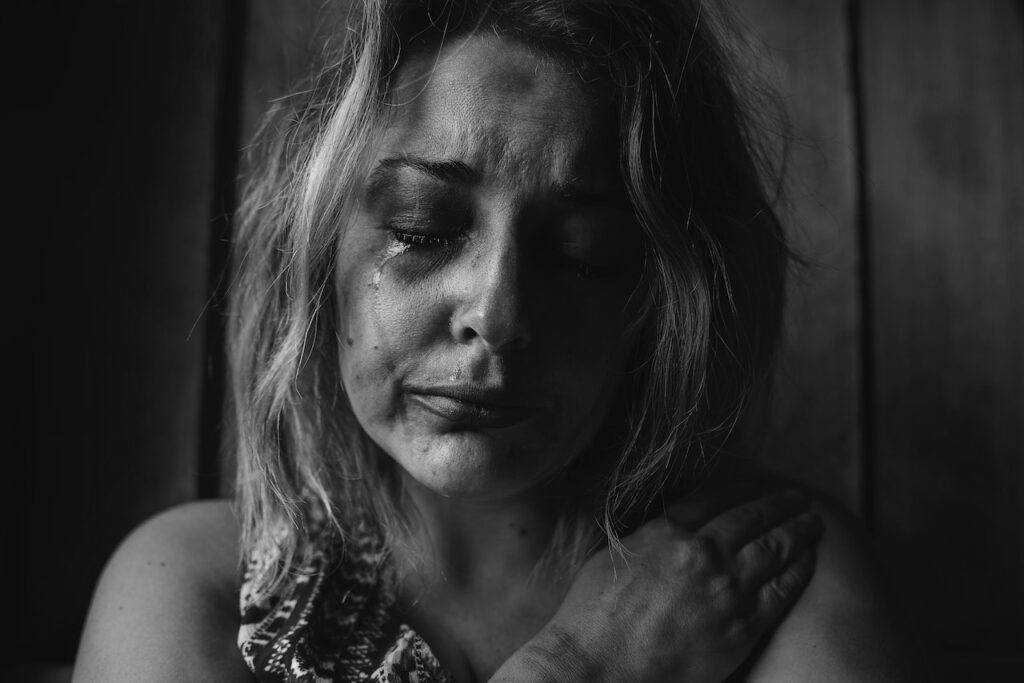
Darkest moment is a term you’ll hear a lot, especially when learning how to plot. Last post, we discussed how critical normal world is for hooking the reading audience early, then never letting go until THE END. Every piece of the “plot” serves a critical function and understanding that function, I feel, makes us better writers.
Oddly, as many years as I’ve been blogging, I don’t recall ever dedicating an entire post to exploring the “darkest moment,” what it is, why it matters, and the difference it can make in the overall quality of our stories.
Why “darkest moment” as a topic?
I can’t talk about it, but my family was hit with a major tragedy unlike anything I’ve ever experienced.
At close to fifty years old, I’ve been through many losses, but nothing like this. Just imagine bad, then multiply that by a factor of a thousand. I only thought I understood the darkest moment until this summer.
***It’s okay. We’ll get through it. We are slowly righting from the blow, but it is/was…bad.
And, since we writers are a thrifty lot, nothing in life ever goes to waste…especially trauma.
What is the Darkest Moment?

Seems like a simple answer, but is anything but. Commonly, we hear that the darkest moment is that point in the story, close to the end of the book/movie, when the main character (usually the protagonist) loses all hope. We ALL know this point, even if one is not a writer.
All of us have watched a movie where it looks like the good guys totally have it handled, the plan is brilliant and SURELY they’re going to win.
But wait…there’s thirty-five minutes left in the movie.
We (the audience) inherently sense something is up.
The team is ready, we have had the montage and are ready for ANYTHING!
*sings* If you need to learn a lot in a really short time, you need a montage! A montage!
Or we read a book. Same thing happens. SURELY the character(s) have this down! What can go wrong? Except there’s another fifty pages remaining. Something definitely sus is going on there.
So WHY?
Everybody Arcs
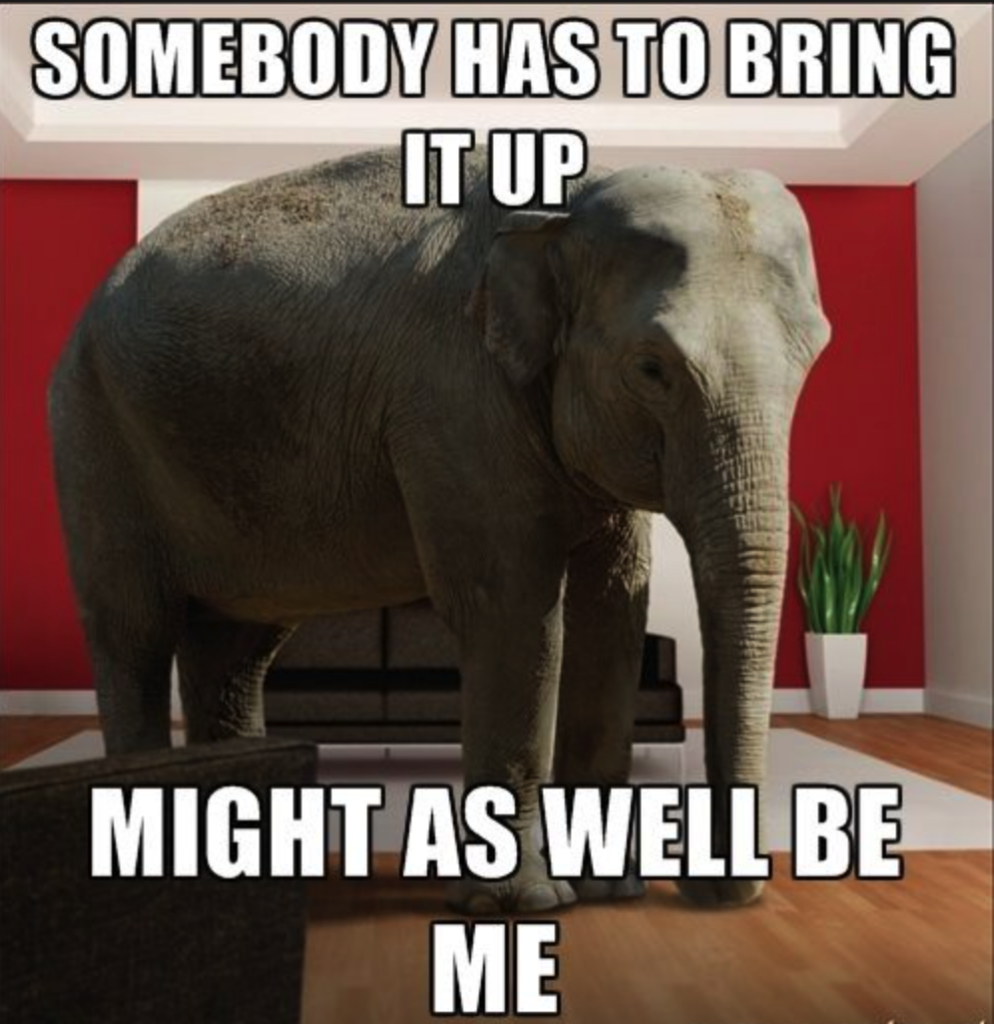
A novel has a LOT of moving parts. Nothing about writing fiction is easy. We are tasked with creating a captivating story that can span anywhere from 50K to maybe as many as 200K words (think Lonesome Dove or Pillars of the Earth).
We need to have a plot, tension, conflict, relatable characters, great dialogue, immersive prose, pacing, theme, world-building, character arc, plot arc and on and on.
Also, the difference between reality and fiction is that everything in fiction has to make sense.
*nods to Tom Clancy*
In life, random bad things happen ALL the time. There is no rhyme or reason. In fiction, however, everything is cause and effect. Everything has to be planned (at least from our end, the author).
Whenever we come up with a plot/story idea, we have to cast the story. Ideally, the MC/protagonist lacks some critical element that would mean immediate defeat. The MC must endure the story gauntlet to even hope to succeed against the antagonist.
Maybe they don’t have enough knowledge, training, or confidence. Think newbie FBI agent, Clarice Starling, in Silence of the Lambs. Perhaps they’re a loner who needs to be better at relying on a team (E.g Tony Stark/Iron Man).
Perhaps they’re too clingy and need to venture off away from toxic “support” that is actually holding them back. Think Evelyn Couch in Fried Green Tomatoes (based off Fried Green Tomatoes at the Whistle Stop Cafe) .
They have no choice BUT to evolve and grow. As the late, great Blake Snyder said, “Everybody arcs!”
False Gods
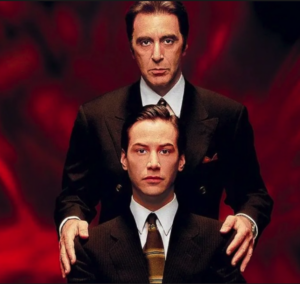
When I teach character creation, I challenge writers to ask one question about all the characters, but the protagonist and antagonist in particular.
What is their false god?
Can you name what THING the MC falsely believes is the solution to all their problems?
Is it more money, status, power? How many stories have we seen where an MC loses their way chasing power? Devil’s Advocate is a great example. The most powerful law firm on the planet recruits Kevin Lomax, a small town, idealistic young public defender who’s never lost a case.
Ultimately he has to choose between unlimited power and his conscience.
What about someone who’s false god is “freedom” which actually isn’t freedom at all, rather it’s really just avoiding responsibility?
In Michael Connelly’s The Lincoln Lawyer, defense attorney Mickey Haller is terrified of responsibility. He never defends ANYONE he even remotely thinks is innocent and only takes cases for (basically) scumbags.
Why?
Because he did defend an innocent early in his career, lost the case, and the kid he defended is sitting on death row. He cannot bear to go through that again. Haller worships his self-delusion that he doesn’t actually care about innocence and guilt…but does he?
In Bridget Jones Diary, Bridget (NOT a lawyer) genuinely believes losing weight and finding love will make her whole. Her false god is this rather superficial view of life, love and romance.
Why False Gods?

If we look at all civilizations throughout human history, it’s easy to see that we are wired to worship something. What do “gods” usually have? Altars. What do worshippers place on an altar in return for “favor”?
Those things they prize the most.
Thus, if we have an MC who dedicates his life to being the best, the richest, the most powerful, whatever…what is he likely sacrificing on that altar?
Anything that actually is worth having: love, family, friends, relationships, etc.
Because he is (possibly) operating out of a WOUND (growing up poor), his vision is distorted as to what exactly he needs and what would ultimately make him happy/safe/fulfilled.
And I just gave y’all the plot to probably fifty Hallmark movies.
No shade on Hallmark, because they do a brilliant job of telling stories audiences love and can relate to. Even me, the gritty, weird horror/speculative fiction writer.
We all cheer when the filthy rich workaholic FINALLY has an epiphany that he’s empty and alone and has been accepting a shill over true bliss. His net worth might be billions, yet it is all meaningless without (insert whatever HERE).
And we can do this with all kinds of “false gods.”
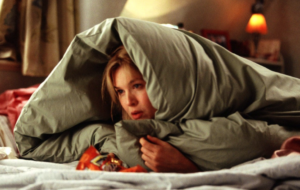
Bridget Jones eventually sees the truth about Daniel Cleaver, the man she’s been obsessing over. He’s narcissistic and shallow (and, to her eventual chagrin, a reflection of who SHE is). Over time, as she matures as a person, she sees the “antagonist” Mark Darcy in a new light.
Darcy, a man that initially drove her to madness, actually is the real deal. He represents a romance with roots, one that can endure. Love isn’t always shiny with bows and ribbons and loving for the long haul requires learning to accept flaws (like her extra few pounds and Darcy’s often acerbic nature).
Darkest Moments are Pivot Points
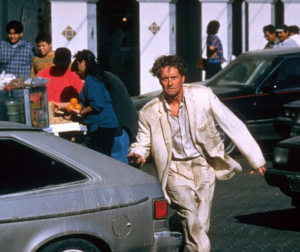
Why the darkest moment is so critical is because it marks the point in time just before the breakthrough. Everything our MC has relied on–connections, money, power, family, bright ideas, super powers, good looks, charm, etc.—FAIL them.
When I teach structure, I “joke” that Act Two is really a bunch of increasingly dumber (smarter) “Bright Idea Fairies.”
The MC is still trying to do things the old way. BUT, if we do our jobs, we, as Author God, should craft an antagonist the MC cannot defeat until they gain a designated level of self-awareness.
If they are a loner, they cannot win unless they have a TEAM. If they’ve always used money to get out of everything, put them in a world where money means NOTHING (E.g. The Game).
In fact, the 1997 movieThe Game (image above) is a fantastic study in this brand of darkest moment. Nicholas Van Horten is just stupid wealthy. Everything (externally) has always fallen in place for him because he isn’t merely wealthy, he also comes from wealth. Problem is, he’s never dealt with his father’s suicide and how that impacted him.
We see his money and power as assets, when in truth, they’re a shell he can use to hide from his inner demons.
When his little brother, Conrad—the family screwup—gives him a GAME as a birthday present, Nicholas has no idea what to think about such a seemingly odd gift.
When does the game begin? How can he know?
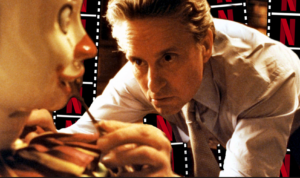
This movie is from 1997 and it is still incredible because we watch Nicholas lose everything. In the beginning, he’s the guy with the private jet that can get into any restaurant without needing a reservation. By the end? He’s literally buried alive and has to claw out of a shallow grave (MESSAGE!).
Once free, he is dirty with no money, no shoes, no nothing. To get home to San Francisco, he must humble himself enough to beg for even the most basic of “luxuries” like food or a ride home. All these “things” he took for granted, he now must humble himself enough to grovel for if that’s what it takes to get answers.
Yes, spoiler alert, but y’all have had since 1997 to see it 😛 . Also, that isn’t the whole story so totally worth a watch and a study.
You Have NO IDEA Who You REALLY ARE
And neither do I.
Until we are tested, we have ZERO idea who we really are. I know that might not be popular to say, but it is true.
I would LOVE to believe that, if aliens invaded, or the zombie apocalypse hit, or whatever, that I would be noble, kind, just and brave. That is being human. We don’t want to think we’d be the one hiding under the bed, running away, or using that obnoxious neighbor as a human shield.
Should have picked up yer dog poo off my lawn, Buddy.
All kidding aside, we tend to have a far rosier view of ourselves than is usually accurate and that is okay. We also, conversely, underestimate what we might be capable of under the right circumstances.
Maybe we will be courageous. Perhaps we will do the right thing even when it will cost us everything. We simply don’t KNOW until those beliefs are tested.
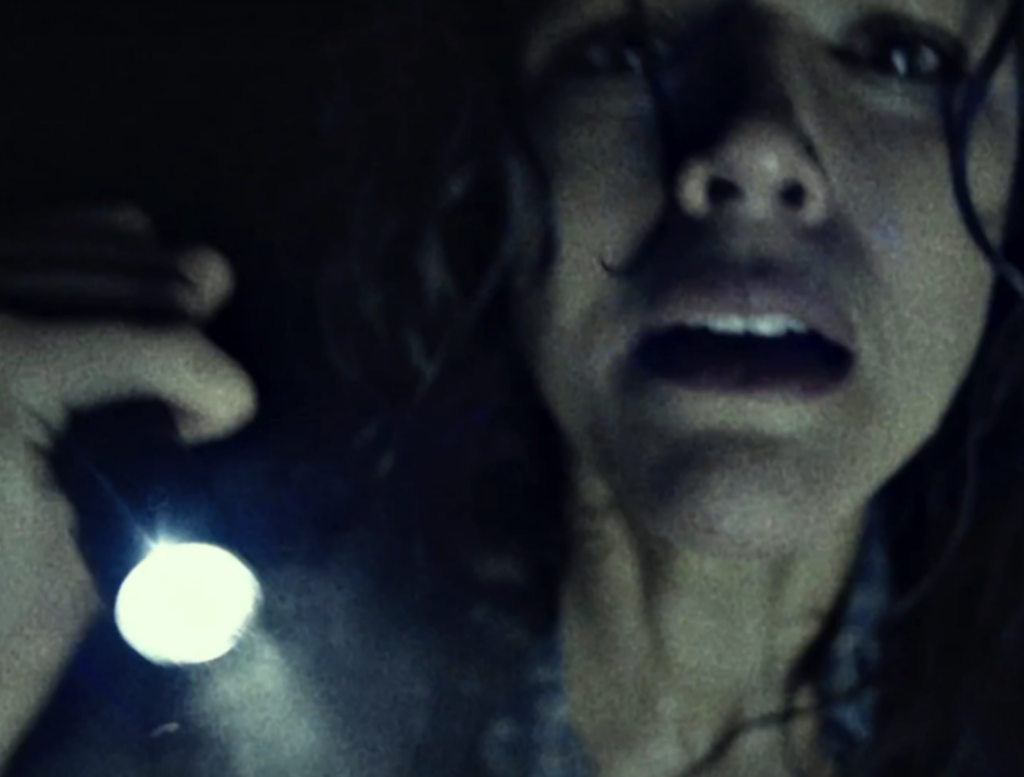
For a great example? Bird Box (movie and book). The character, Douglas, though a hard pill to swallow, makes a lot of great points about this exact topic.
We have no idea what we are capable of doing—good and bad—until tested. Thus, the point of every (good) story is to show this aspect of life in distillate.
Audiences yearn to see that regular people can do extraordinary things or even extraordinary people have to learn lessons we mortals struggle with.
Come on! Even the Norse god THOR battles with pride, ego, arrogance, entitlement and being fickle and shallow. Yes, even the Norse god Thor loves his brother, hurts that his family is estranged, wants love and acceptance, and seeks deeper meaning to his existence.
Darkest Moment in Action
In my opinion, the darker the darkest moment, the better the story. This is the part where we cannot hold back. When I train writers, I have a saying, “Make it worse until you make it weird.”
We should throw everything including the metaphorical kitchen sink at our characters (the MC in particular). The story is the the fiery forge that is going to remove those character impurities and mold a lump of undisciplined, clueless blech and then allow conflict to hammer that MC into someone magnificent.
What refuses to bend eventually will…with enough heat.

We pile everything onto the MC (and allies) and at the end of Act Two, when the Bright Idea Fairy fails them all, we strip everything away.
The darkest moment is the critical point when the MC finally has a Damascus Road experience. The scales are removed from their eyes and, for the first time, they see the truth about themselves and others and how to be authentically triumphant.
Right after the darkest moment is when our MC finally transitions from a mere protagonist to being worthy of the title HERO.
We Develop in the Darkest Moment
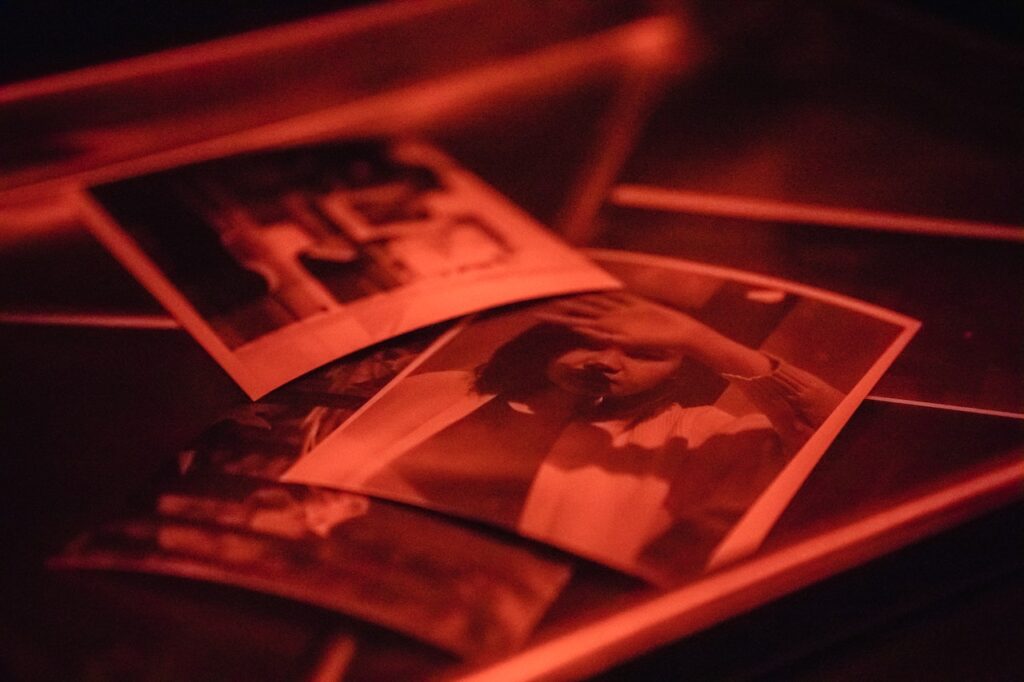
Darkest moments are like dark rooms in photography. Very counterintuitively, we must immerse ourselves in the blackness to reveal the true picture.
I imagine most of us cannot make it too long in life without tragedy visiting. All of you have your stories, which is probably why you’re here. Writing is cheaper than therapy, right?
We love working through our traumas, heartaches, disillusionment by telling stories.
Which is great because humans are a story people!
Whether it is a cozy romance that reminds us love is still alive and romance still possible or an action-packed thriller where bad people get justice not plea deals.
We need catharsis!
Fiction operates in extremes. We love the characters who stand a snowball’s chance in hell (E.g. the Hobbits in LOTR), who have so much to learn that we have NO idea how they’ll survive. But they do. And they WIN.
Yet, we ALSO love the stories involving characters with everything going for them, who finally come up against a problem/foe that demands more than the obvious trappings of power (Dr. Strange, The Game, Stepford Wives, Game of Thrones).
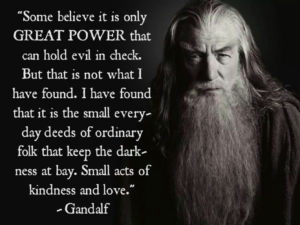
Stories matter. What we write matters. Writers carry the torch of hope and, as long as there are stories, people will have footsteps they can follow from the pages into their own lives.
When We LOSE, We WIN
Fiction shows us that, no matter how bad things get, there is always a chance at a new beginning.
Ultimately, I believe hope springs eternal so long as there are writers in the world. Ideally, now that we’ve taken a deeper dive into what the darkest moment is, what it means and why it is SO important, you’ll look at your stories with fresh eyes.
Maybe people need to remember there is still goodness in the world, that good guys win, justice can happen, the odds are never too great, one is never too old or too young or whatever.
The darkest moments in life—and in story—often mean more than we realize.
The darker the night, the more spectacular the dawn.
What are YOUR Thoughts?
I’ve missed y’all! What are some of the most profound darkest moments you can think of in cinema or books? Have you ever had something happen in life SO AWFUL that the only way to make it make any sense was to turn it into story? What are some of your favorite comebacks? Any thoughts on the darkest moment at all? Y’all always have such brilliant perspectives.
I LOVE COMMENTS!
To prove it and show my love, for the month of AUGUST, everyone who leaves a comment, I will put your name in a hat.
I actually have landed agents for people who’ve won this contest. Agents like me because I make their lives easier.
If you comment and link back to my blog on your blog, you get your name in the hat twice. What do you win?
The unvarnished truth from yours truly (and maybe even time with an agent).
I will pick a winner once a month and it will be a critique of the first 20 pages of your novel, or your query letter, or your synopsis (5 pages or less). People with superlative writing, I (with your permission) have been known to pass you onto an agent.
Anyway, I look forward to reading your comments and your writing!








31 comments
Skip to comment form
Fascinating post, thank you!
Sometimes I wonder what my life would look like today without the darkest moments I’ve experienced. That’s why I love to inflict those moments on my characters. I look at it as an opportunity for them to shrivel, grow, or find a fork in the road. Thanks for a truly thoughtful analysis of where our darkest moments lead us, Kristen.
Great post! Sorry it was trying times that inspired it. Hope everything is okay now, and I’ll add you to my prayers. ((( HUGS )))
Author
We made it “through” which for now will need to be enough. I am just SO HAPPY to be back with you guys. This is a labor of love and I feel very lost when I’m away. I definitely need and appreciate the prayers.
Darkest moments for me (and transferred into my writing) is that moment beyond loss, where you no longer search for the next ‘answer’ and expectations fade into nothing. All limitations evaporate and you simply float as a mind without passion, expectation, fear or sense of loss. You just are — and your thoughts eventually slide into view that are simply identity truths. These are the things that are your truth, the gold of your existence, the essential values that cannot be corrupted.
And then the realization comes that the foundation can be rebuilt, not from the ashes or debris of the past, but by acknowledging unchangeable personal truth.
I love this post and send you ever-gold energy to augment your foundation. I’ve not been where you had to be, but have endured devastation that required questioning everything I’ve ever known or accepted as real.
You do not stand alone — we all love you. :O)))
Maria D’Marco
Kansas City
Author
Thank you. Y’all always bring me SO much joy. Whenever I “fail” to blog, know THIS is my happy place. If I am not here, SOMETHING is going on. And it is really nice to know y’all love and miss me and are there for me. It’s incredible to enjoy this two-way relationship during an age where people insist “online friends aren’t REAL friends.” I believe they’re REAL just different. So many of you guys are scattered everywhere. I’d LOVE to get us all together…but that is apparently called “kidnapping.”
xoxoxoxoxo
Such a concise and clear interweaving of GMC and dark moment. IM one of the Guides in RWAs P2P program this year. I’m passing this along to my group
Author
I appreciate that! Thank you.
Your usual inciteful post. At a time like this, you show your true colors as a real professional. Warm and supportive thoughts to you and your family.
I loved reading this post. I plan to share it in my newsletter. I have had many dark moments in life, like the time I tried to end my life because of so many bad things going on and I felt like I was just a waste of space. As to fiction, I liked the dark moment in the movie Elizabethtown when Drew throws away all of his worldly possessions and is about to kill himself when his phone rings. He knows that answering the phone is the same as making the decision not to end his life. To still be a part of the world he wanted to get away from. And he’s sitting there,thinking, should I take the call? Or go through with my suicide? There’s nothing said during that scene but it speaks volumes!
I’ve had many “darkest moments” in my life. Even though the circumstances are different in my books, the emotions of being in those black bottomless pits are intentionally part of my MCs’ experiences. Discovering the way out and growing from these experiences is the whole reason I write. Maybe therapy for myself, but also to encourage others not to lose hope.
Yes, I missed you and kept checking your site to see if email messed up and didn’t notify me. I was delighted to see a new post from you! Thank you for going deep–I can’t do surface. Your observations and examples are powerful, relatable, and applicable. Thank you for ALL the time, hard work, and emotional investment you pour into sharing these truths with us. I truly appreciate you!
Dark things happened so early in my life that I tend to freak people out with my blunt equanimity. We’re all walking wounded, and I don’t have a lot of time for people who use their damage as an excuse to be toxic. If a character in a story is horrible, I need to know from the start why they’re broken, because if they’re just $hitty for no reason I won’t enjoy the book.
Out of all *my* books, my favourite characters tend to be people who reflect my flaws and then transcend them. I turned this back on itself, and have made certain characters into role models. When I need a boost of confidence I think about Izzy, and how he hurls himself into every opportunity and manages to come up smiling. If I need to be calm and reserved I think of Simon’s confidence. When I feel chaotic, it’s a Fred moment, and I know to not get too attached to what I think should happen.
What was that you said about writing being therapy?
I appreciate your posts but I have to say that i read a lot of books and get really tired of the loosing everything dark moment, over and over again book after book. predictable and unpleasant. I have and have had enough dark moments in my own life—I really hate it if it is just part of a formula…
Author
There is a difference between a formula and formulaic. For instance, a pizza has a formula. It has THOUSANDS of variations. BUT…if we deviate too far, it is no longer recognizable as a pizza. Formulaic writing is simply poor execution. So I TOTALLY understand and agree.
Heartfelt prayers are sent for your life’s terrible woes. As always, your blogs are so intuitive because you are an aware person/author whole thinks wholly. I have missed a lot of your posts since I was in my own dark moments for the last three years. Dark moments for characters come from basically three elements and these should help writers create their own for their story. The author having their own dark moments gives rise to empathy so the character can feel and experience it. An author doesn’t need to experience it firsthand, but life’s experiences can usually help if they are aware. In the story, the character has to have a basis (a background) that will make them respond to that dark moment, which includes their personality. This is also where twists can come from. Otherwise, it’s a Deus ex machina. The third is the design of the story plots that bring them to this dark moment. Which, to be fully realized, should have another character be reinforced to gain a positive or negative outlook on the situation. A dark moment should encompass more than just the main (or any) character. It is the cheese still in the mousetrap as it crashes down. I like to find these dark moments where the protagonist and antagonist are affected by the same dark moment. Why? Because Pro and Ant essentially want the same thing, not opposites. I have a five-book series, so each book has to have its dark moment, and, since I have two MC, there is more than one dark moment. As you have said, they can’t be formulaic.
Author
Hugs for what you’ve been through and SO happy to see you! YES! You’ve added another layer to the concept of the “darkest moment” and yes it DOES encompass other characters and the antagonist is often a mirror to the MC. I could have written a BOOK on this, there is so much one can unpack.
Oh, how I love reading your blog. Especially the hilarious, unexpected comments that you sprinkle in so carefully!
I think I was always aware of “the darkest moment” as the character I play in my own life has lived through way more than her share. I think the author of my story is a sadist. But you have made it so much clearer to me now and I realize that I have a few stories with MC’s that need a bit more terrorizing. God help them! LOL
Darkest moment are great for story, but not so fun to live through. Whatever it is you and your family are living through, please know I am praying for you. May your dawn be spectacular!
Author
Definitely not fun to live through, but I am still here. So far! I often wonder if the aftermath is worse. You don’t have all the adrenalin to keep you going. One is simply left alone in the debris trying to figure out what can be saved, if it is worth it, and how it will ever fit together again.
Another thoughtful post that makes me dig deeper into my MC’s head. Thank you!
Surviving darkest moments is the trick, and no one is ever the same afterwards. Take care of your self.
As I read your post, I could visualize myself watching the third installment of Lord of the Rings in a movie theater. As the huge close up of an Ork or some other intense character filled the screen, I found my hands over my eyes as I took a few quick glances at the screen, unable to take in a long stretch a particular dark moment. I’ll be mulling for days how I likely do the same within my own life.
And prayers for your situation. Thank you for thinking of us in these difficult moments.
As always, Kristin, your post is so full of great stuff! And you are so right. Until we face the darkest of dark moment in our own lives, we have no idea who we really are or what we are made of. Pinning this for future reference. Thank you for sharing!
We had our darkest moment in 2013, lasted 13 months. Still living on the fringes of that darkness and probably will forever. We aren’t the same people on this side of the event as we were before the event, that’s for certain. I draw on that darkness now when writing my pinch points, whether to ignite that trauma in my readers or exorcise it from my own psyche, who knows? Maybe both. Either way, I’m having so much trouble finishing my current WIP, and I think it’s because I haven’t gone dark enough. It’s hard in the romance genre when an HEA is required and your readership knows there will be that happy resolution, but my job is to convince them that it’s not actually on the table, which requires absolutely breaking my MCs, when it took so much time and effort and love and craftsmanship to bring them to life.
My prayers for you and yours as you go through what you’re going through. Missed you.
Literary fiction, with many quiet moments of pain filled interiority, seems to fall more into Gandalf’s small acts that keep evil in check than Save the Cat’s dark night where evil almost wins. As I watch my province burn, it’s easier to find the darkness.
Ah, good timing of your post. Working on the dark moment TODAY on the second book in my new VERA WARDEN series. It’s a bit different from my previous books, because I’m planning a 12-24 book series, and it may be difficult to have as powerful of a dark moment/realization in EVERY book. They’re only 35k and aimed toward reluctant readers–but I’m still aiming for impact. You know I like a challenge. 😀
I’m sorry to hear about your dark moment–I hope you have as magical and wonderful of a “fix” as is often found in stories! -Jennifer (Crested Butte)
The novel that I am working on right now is about a man that has an affair, yet he still loves his wife. Basic plot, but I think the way that I wrote it is different, I didn’t soap opera the book up. The whole book almost feels like a “darkest moment” thing. I don’t know what genre to put it in.
Author
Sounds like General Fiction (a.k.a. “Literary Fiction”) as opposed to a genre fiction. That is a slightly different structure. This post might help you more.
https://authorkristenlamb.com/2017/03/how-to-exorcise-inner-demons/
You got me thinking. I have had multiple traumas and losses, personal and financial. I lost more money than most people make and now I thrive below the poverty line which is where I came from to begin with. Coming out late in life didn’t help improve my chances of survival. Having mental health issues isn’t easy, either. But you know what ? None of that turned me away. Such hardships made me write more and better. I lost everything, I mean everything, more than once which proves life can’t keep an artist down. I may never make money writing or painting and I don’t care. I’m not going to stop my life’s blood from flowing. It’s not about the money or fame it’s about the art-glue that holds me together. A writer has got to write. Woe to me when I can’t.
Author
Same here. I genuinely think some of the best writers came from the hardest lives. Not only does it give us a wider range of material to work with, but it also broadens the spectrum of our emotional/empathy palette. Not to mention, if we can stick with writing through all the nonsense, it means we LOVE it and that comes through.
You are SO correct. A writer MUST write. Write or DIE.
I agree with Rachel and Kristen!